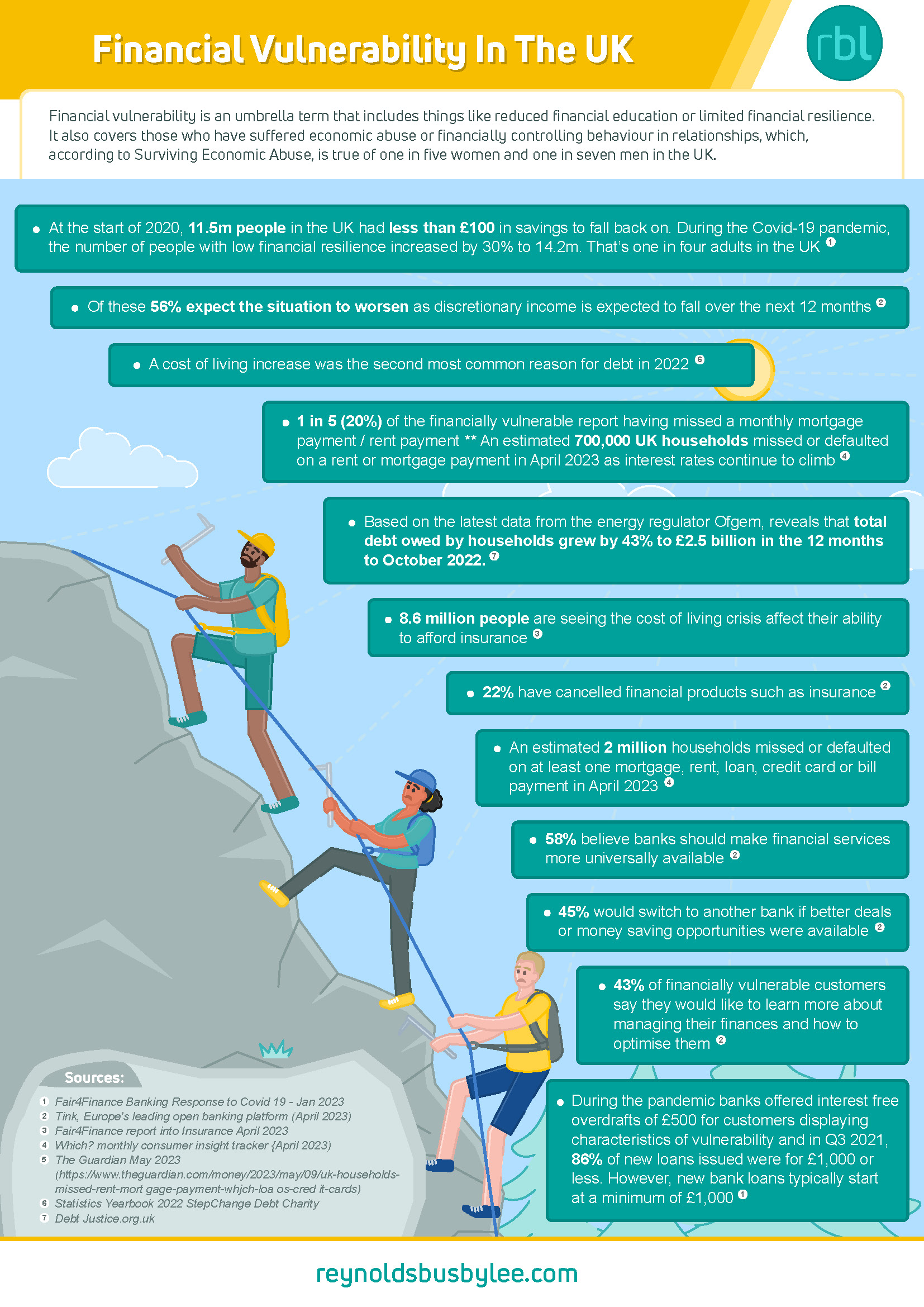
Consumer Duty from the Financial Conduct Authority is now in place, so it seems like the appropriate time to share our latest infographic about the uphill climb faced by many vulnerable customers experiencing financial vulnerability in the UK. The FCAs’ Financial Lives survey from May 2022 showed a significant increase in the number of UK adults experiencing low financial resilience – up to “1 in 4 (24%) of all UK adults who could quickly find themselves in difficulty if they suffer a financial shock”. The FCA advised that “this result is much worse that we recorded in our February 2020 Financial Lives survey”.
The Consumer Duty requirements from the Financial Conduct Authority (FCA) are now just weeks away from the first implementation date for new and current products and with it brings a renewed focus on vulnerable customers. FCA regulated firms are now required to ensure that vulnerable customers receive the same ‘good’ outcomes as non-vulnerable customers and firms must be able to evidence this.

A report issued on 18th May 2023, from the Institute of Customer Service has highlighted that "mounting abuse directed at customer-facing staff is causing a retention crisis, with a record 44% of employees contemplating leaving their roles.*"
Over 40% of customers are reported as increasingly venting their frustrations at front-line staff through verbal harassment, insults, threats and in some cases physical violence.

It’s deaf awareness week this week and this year’s theme is ‘deaf inclusion’. Action on Hearing Loss estimates that more than 12 million UK adults have some degree of hearing impairment or deafness.
I’ve watched and read several interesting discussions this week explaining how hearing loss can lead to withdrawal and isolation as there’s often an embarrassment factor and stigma attached to hearing loss and a real reluctance in many to use hearing aids when the need arises. When we think of hearing aids, the stereotypical image we draw in our mind’s eye is of the large hearing aids our grandparents wore, which whistled or buzzed, and they’d eventually switch off and fall silent, becoming detached from the conversation. However, there’s been a huge development in recent years over the size of hearing aids and the improvements they can bring to your hearing if you are experiencing hearing loss. There’s no need to feel isolated or excluded any longer.
Here we explain what cookies are, how we use them and informs you of your choices.
Cookies are small pieces of text sent by your web browser by a website you visit. A cookie file is stored in your web browser and allows the service or a third-party to recognise you and make your next visit easier and the service more useful to you.
When you use and access our website a number of cookie files are placed in your web browser. We use these cookies to enable website functionality and to gain insights into your preferences to the services we provide such as to store your preferences to enable advertisements delivery including behavioural advertising.
We use a combination of cookies such as session and persistent. We also use essential cookies to authenticate users to prevent fraudulent use of our website.
For the full disclosure of the types of cookies we use please click here
If you would like more information regarding cookies please click here to visit the ICO (Information Commissioner’s Office) website.